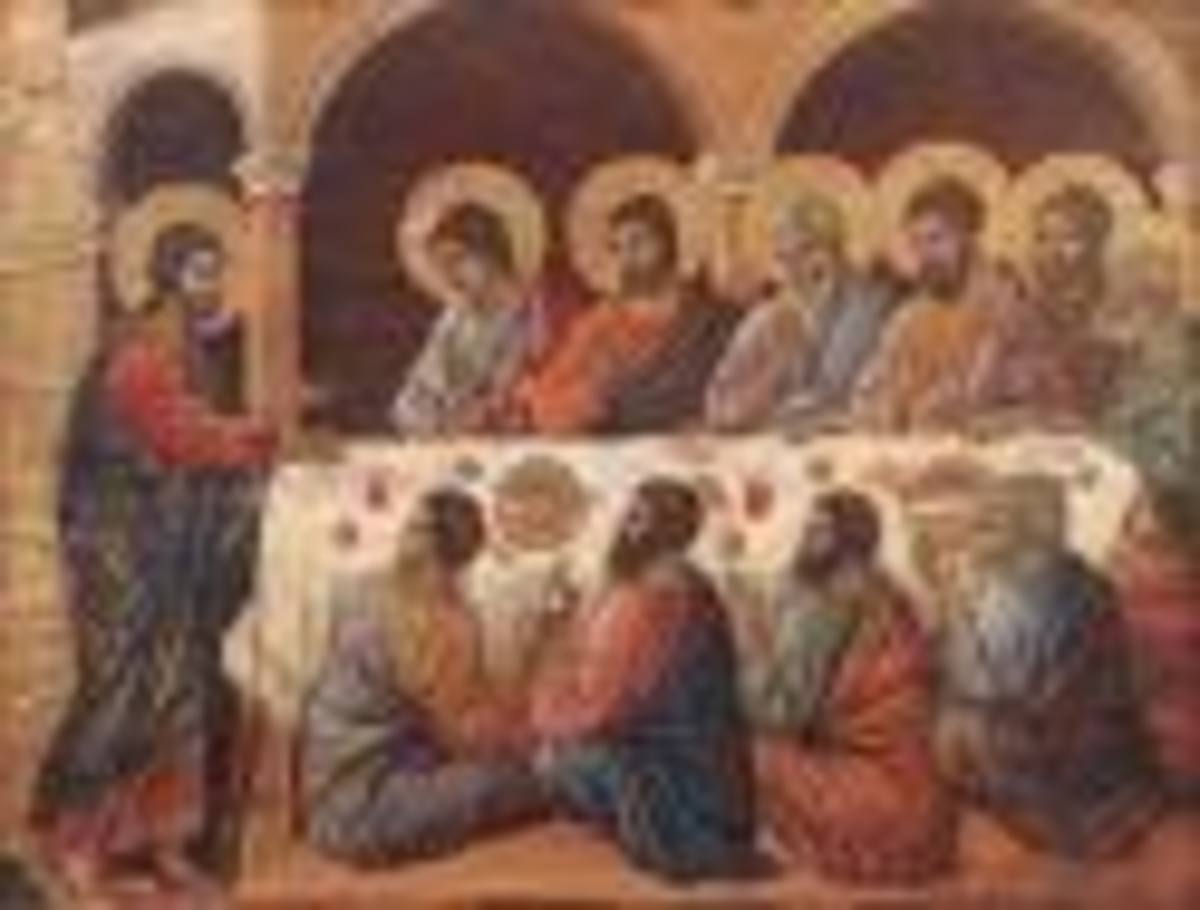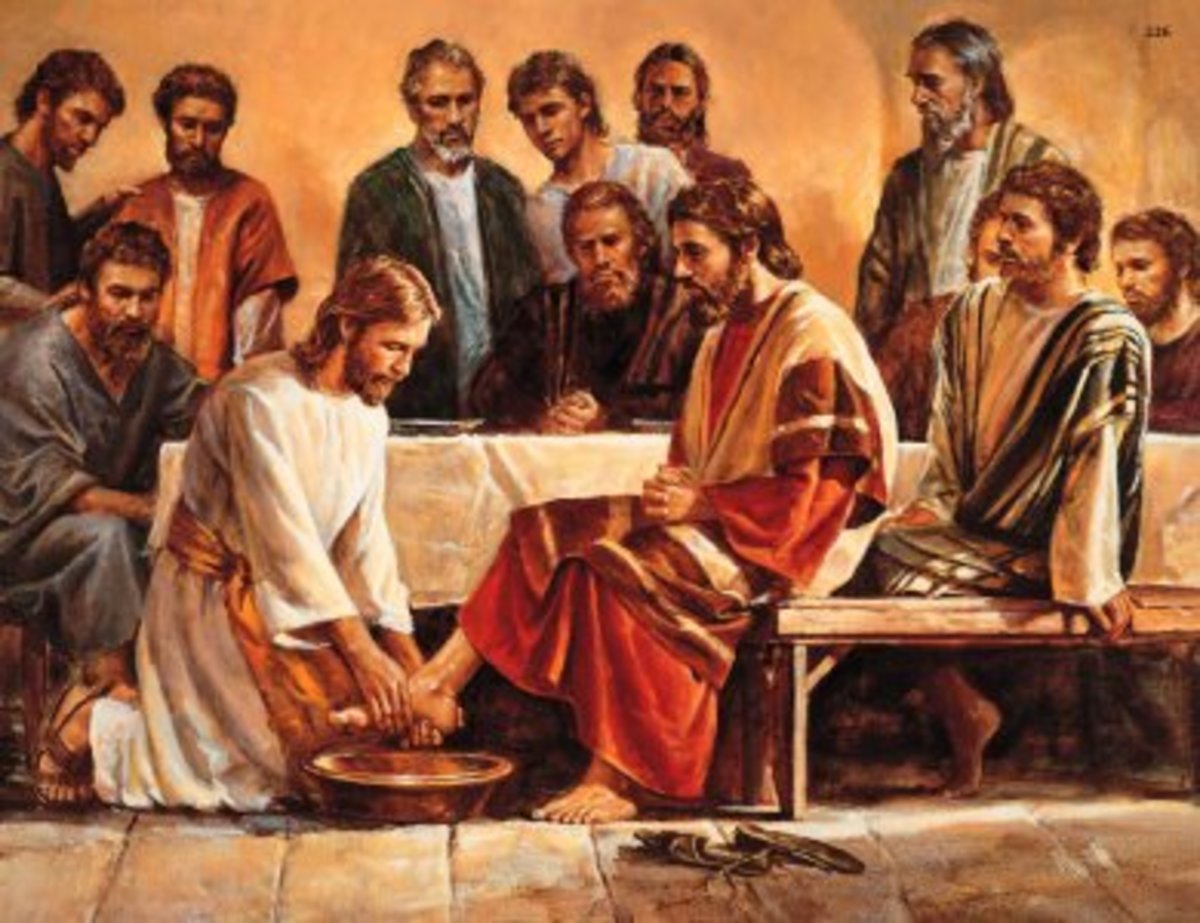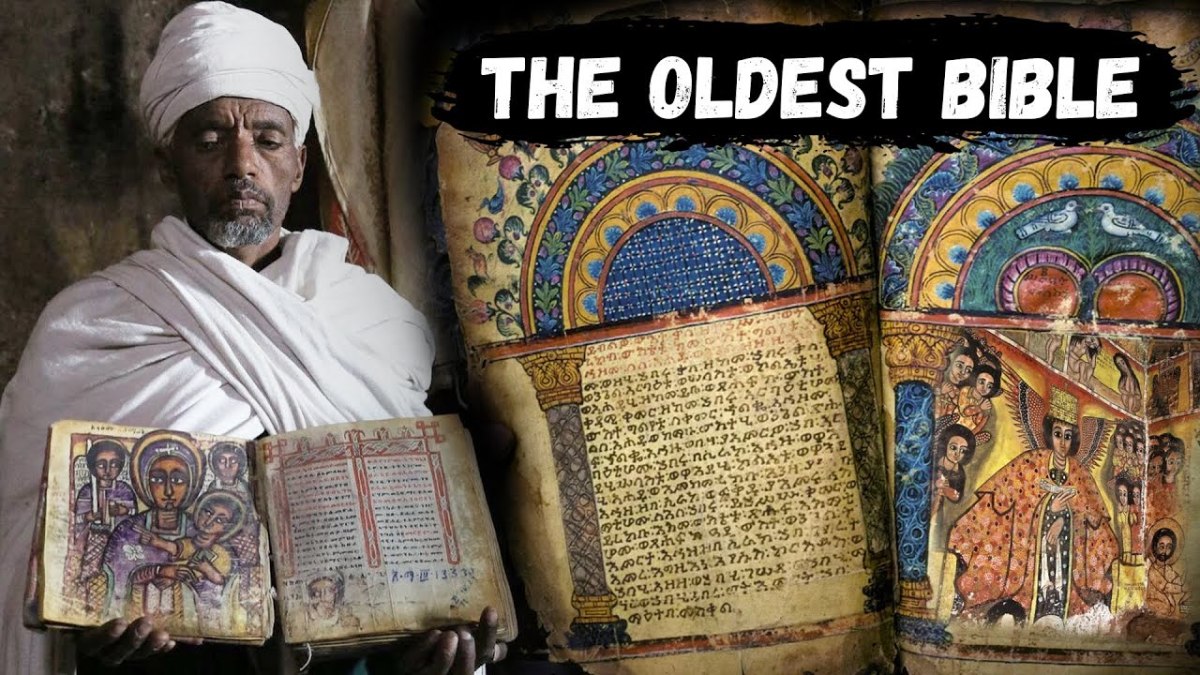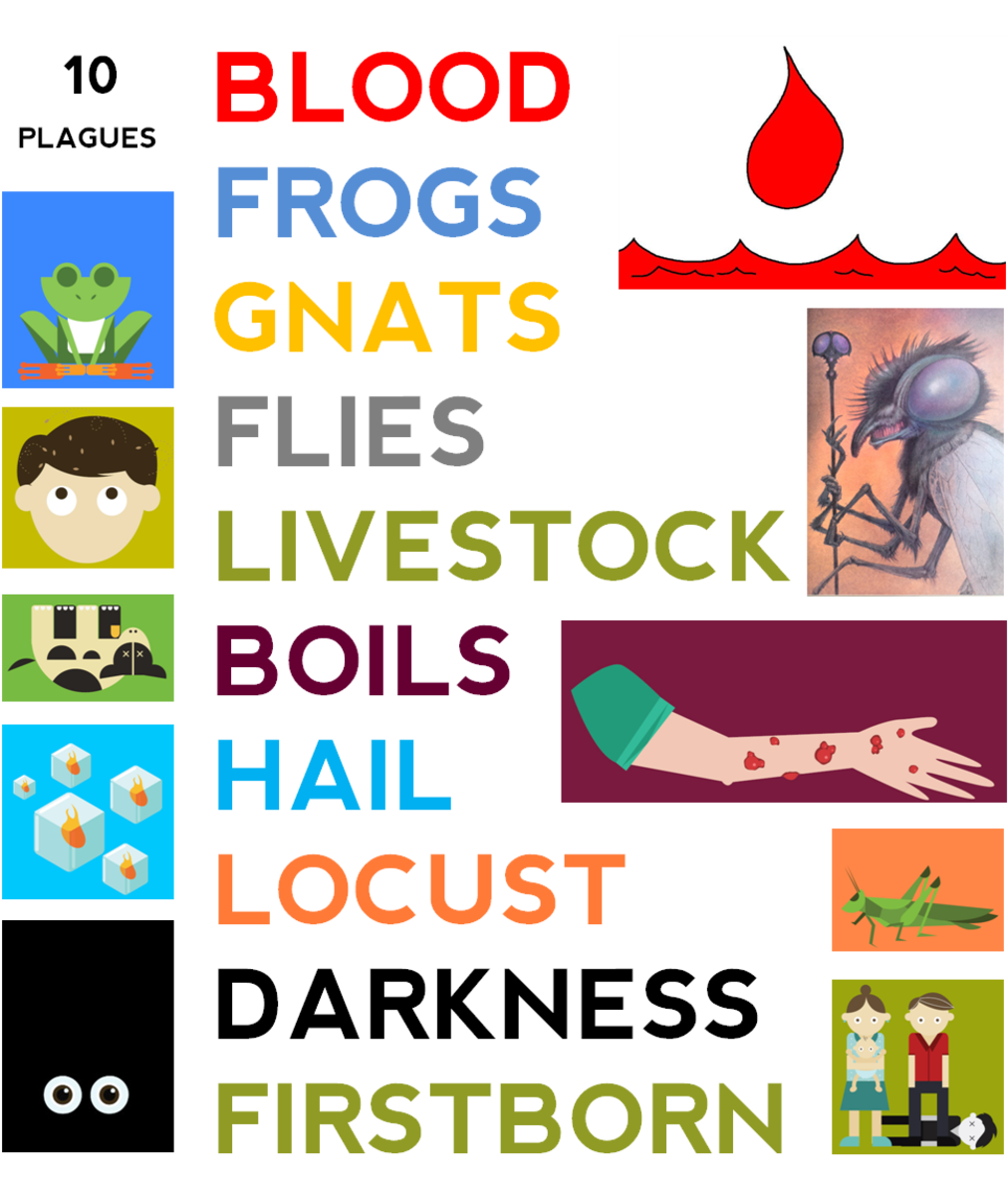Bible: What Does 1 Corinthians 4-5 Teach Us About Apostles and Church Discipline?
The Apostle Paul

Robertson and Plummer
The Apostle John

Timothy
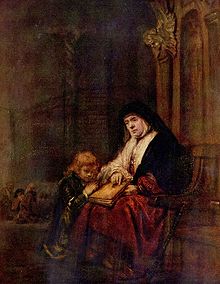
Apostles: Servants and Managers
Paul desires everyone in Corinth to regard apostles and teachers as God’s servants (lit. underrowers) and as managers of the truths God has revealed for this dispensation (v. 1).
As servants and managers, these leaders must faithfully guard God’s mysteries (v. 2).
Paul shows no concern about the Corinthians’ judgment of his faithfulness (v. 3); God, and not so much the Church or even Paul himself, will keep him accountable (vv. 2-4).
After the Rapture, Christ will bring all motives and secrets of believers out into the open, judge them fairly, and praise those saints who served well (v. 5).
The apostle has taken “these things”—warnings about “wise” teachers who are gathering followers to themselves—and applied them to himself and Apollos “for the purpose of a covert allusion” (Robertson and Plummer, The International Critical Commentary of the First Epistle to the Corinthians 81).
They are examples from whom the Corinthians might learn an important two-pronged lesson:
(1) Do not think beyond what God has written; and
(2) Do not be arrogant on behalf of one against the other (v. 6).
[The exhortation encourages them to live accurately according to Scripture; by so doing, they will not elevate one person over another.]
Do Not Elevate One Leader Over Another
Paul employs three penetrating questions to help these believers rethink their position.
His bottom-line answer follows: God has not given them the right to elevate one leader above another.
Even if some leaders do have superior ability, they should not boast about it, since they received it as a gift from God (v. 7).
With “biting irony” (Ryrie, New Testament Study Bible 293)/ “grave irony” (Robertson and Plummer 83), Paul criticizes the Corinthians’ “imagined exaltation” (Ryrie 293), and “attacks the self-esteem” of his readers (Robertson and Plummer 83).
The Corinthians foolishly think of themselves as already “full”/“rich,” and as ruling in the Kingdom without the help of the apostles; Paul reminds them that he and other apostles are suffering horribly.
Tongue in cheek, he reveals his wish that the Millennium had already arrived so that he could also reign with them (v. 8).
The "Lifestyle" of the Apostle
In verses nine through thirteen, Paul specifically delineates the hardships with which God has “displayed” the apostles. These difficulties include
(1) being condemned to death;
(2) being made a spectacle to all created beings (v. 9);
(3) being considered fools, weak, and dishonorable (v. 10);
(4) suffering hunger, thirst, inadequate clothing, beatings, and homelessness (v. 11);
(5) enduring hard manual labor, and
(6) experiencing reviling and persecution.
Though defamed and made “the offscouring of all things” (v. 13), they respond with grace and perseverance (v. 12).
While they (on the one hand) act godly under duress, the Corinthians (on the other hand) receive honor from men (v. 10).
The apostle discloses the facts of his life as an apostle not to shame the church, but to warn them as his spiritual children (v. 14).
He claims his “paternity” of them through their acceptance of the gospel he preached, and encourages them to mimic his lifestyle (vv. 15-16).
Paul informs them Timothy’s arrival; as his trusted disciple, this young man will review the apostle’s teaching with them (v. 17).
Some Corinthians, not believing that Paul would ever visit again, continue in their arrogance; however, the apostle, subject to God’s will in the matter, promises to come by, discover the troublemakers, and deal with them with divine chastisement—if necessary.
He offers them an option: chastening or gentleness (vv. 18-21).
[As Peter demonstrated God’s power in the Ananias-Sapphira case (Acts 5), so Paul threatens to do in Corinth unless these “puffed up” ones repent.]
Church Discipline
Do you believe in church discipline that leads to excommunication?
I Corinthians 5
Disciplining the Sexually Immoral
Paul moves on to another issue that the Corinthians had allowed to fester in the church: a blatant case of sexual immorality in which a man was cohabiting with his stepmother (v. 1).
Instead of mourning over this great sin, the Corinthians remain arrogant and take no action to excommunicate this impenitent fellow (v. 2).
The apostle, though “absent in body,” has already tried the case as if he were present with them and judged the sinner “Guilty” (v. 3).
Standing upon his authority as an apostle of Christ, Paul commands the church to excommunicate this believer the next time they assemble (vv. 4-5a).
He desires that they put him out into the world where God may allow Satan to take his life.
Although the Lord will translate the individual at the Rapture—the sinner is apparently a Christian—yet He cannot permit him to destroy the Church’s witness through his evil behavior (v. 5b).
Leaven
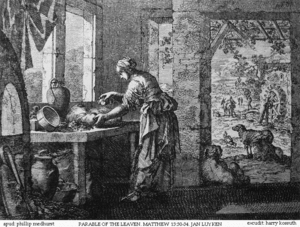
Purity
view quiz statisticsA Little Leaven
Paul condemns the attitude of the Corinthians, which unwisely tolerates this evil practice; the church leaders are apparently unaware the problem will spread throughout the church like leaven permeates dough if they do not deal forthrightly with it (v. 6).
Again, the apostle orders them to cleanse themselves of this individual that they may be free from evil again (v. 7a).
They have benefited from the sacrifice of Christ on their behalf; therefore, they must remove the old “leaven” of malice and wickedness from their midst, so that they can celebrate “the Feast of Unleavened Bread” in truth (vv. 7b-8).
[Normally, bakers transfer leaven from one kneading bowl to the next, thus continuing the leavening process.
This substance is not in itself a symbol of evil, but it may signify the continuation of old ways of living.
The Passover meal and the Feast of Unleavened Bread signal a complete break with a former lifestyle.]
Paul refers to an earlier epistle he had written to the Corinthians—a lost correspondence, [Ryrie, New Testament Study Bible, 288])—in which he told them not to associate with the sexually immoral (v. 9).
He is writing now to correct their misconception on his point, asserting that he did not tell them to stop spending time with unsaved people who manifest this behavior.
On the contrary, he is telling them to separate themselves from sinning, though professing believers whose lifestyles manifest various immoral behaviors (vv. 10-11).
Employing questions to make his point, Paul states that he does not concern himself with judging unbelievers; he also assumes (though he appears to have doubts) that the Corinthians actively police their own members’ conduct (v. 12).
God punishes unbelievers, but the Church is responsible to discipline those who belong to her (v. 13; cf. Deut. 13:5, et al).
© 2013 glynch1



